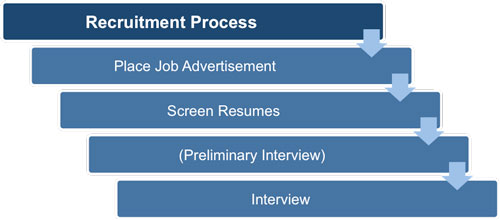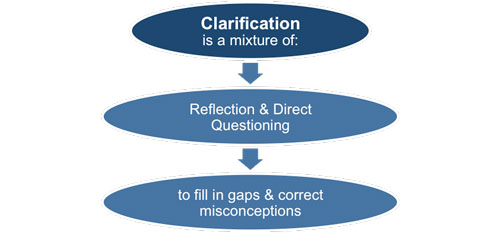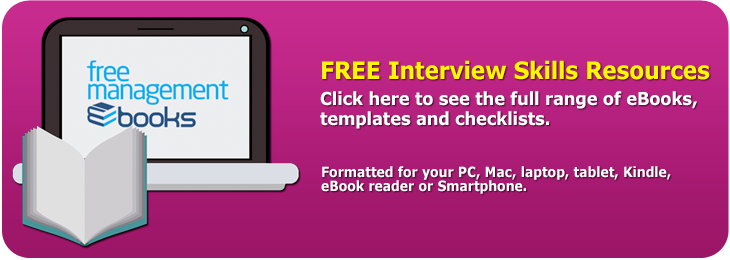Preliminary Interviews
It is not unusual for a job ad to result in hundreds of resumes being received. However, interviewing job candidates is expensive and time consuming, which means that most organizations need to limit the number of candidates they interview.
The easiest way to do this is to go through the resumes one by one looking for anything that can disqualify a candidate immediately - for example, the stated qualifications do not match those on the job specification, or the candidate appears to have insufficient experience.
 |
This task is usually outsourced or delegated to a junior staff member, who may be given an hour or so to go through a pile of resumes with instructions to discard almost all of them. Unfortunately, this process is often both arbitrary and unfair because most of the people applying will be sufficiently qualified and experienced and yet all but a handful of applications have to be rejected at this stage.
As a job applicant the only thing you can do to improve your chances of getting through this stage is to make sure that your resume is tailored to the job specification as closely as possible. Whoever is screening the pile of resumes is only going to spend 30 seconds looking at each one and unless the match between the resume and the job specification is clear then it will be discarded. There isn't really much else you can do to influence the outcome of this process, which can become something of a lottery when there are a large number of applicants.
Many organizations are aware of the shortcomings of this approach and opt to discard fewer resumes at this stage, which means that they are still left with too many candidates to interview properly. The solution is to give each candidate a short preliminary interview, something that can be outsourced and done over the phone in order to keep the costs down.
Employment agency staff or someone from the HR department are often used to conduct these preliminary interviews, which tend to be fairly short and focus on clarifying items in your resume and making a subjective judgment about your communication skills and how well you will fit in to the organization.
These interviews are often conducted outside of working hours and minimize the interference a formal interview would have on your normal working day. This is a good thing, but make sure that you schedule the interview for a time when you can give it your full attention. You don't want friends, family, or children around during the interview because background noise and distractions can make you appear disorganized and unprofessional.
If you do receive a call and the timing is poor, it is always best to ask for a callback ten minutes later, which will give you time to arrange things so that you can give the interviewer your undivided attention.
Statements that would be quite clear when supported by facial expressions and body language can be ambiguous over the phone, because a telephone interviewer is blind to all of your nonverbal signals. This means that you need to think carefully about what you say, and answer questions in a straightforward manner. Remember to smile when you are talking, the interviewer will detect it in your voice and feel more positive about the conversation.
Those individuals who come across well in phone interviews have good active listening skills and use them throughout the interview. Active Listening is made up of three components: reflection with clarification, listening orientation, and questioning skills. These are explained in detail in our free eBook 'Active Listening' which you can download from this website.
 |
During any phone interview it is essential to clarify that your understanding of the question is correct. You can use a quick question and short pause to allow the interviewer to correct any misconceptions.
Make sure you have an up-to-date resume in front of you and a notepad to take down anything that could be useful in later interviews. At the end of the call, don't be afraid to ask whether or not you have got through to the next stage.
You may also be interested in:
Management Interview Preparation | Preliminary Interviews | Using a Recruitment Agency | Understanding the Role Description | Matching Competencies to Role Responsibilities | Matching Competencies Example.


